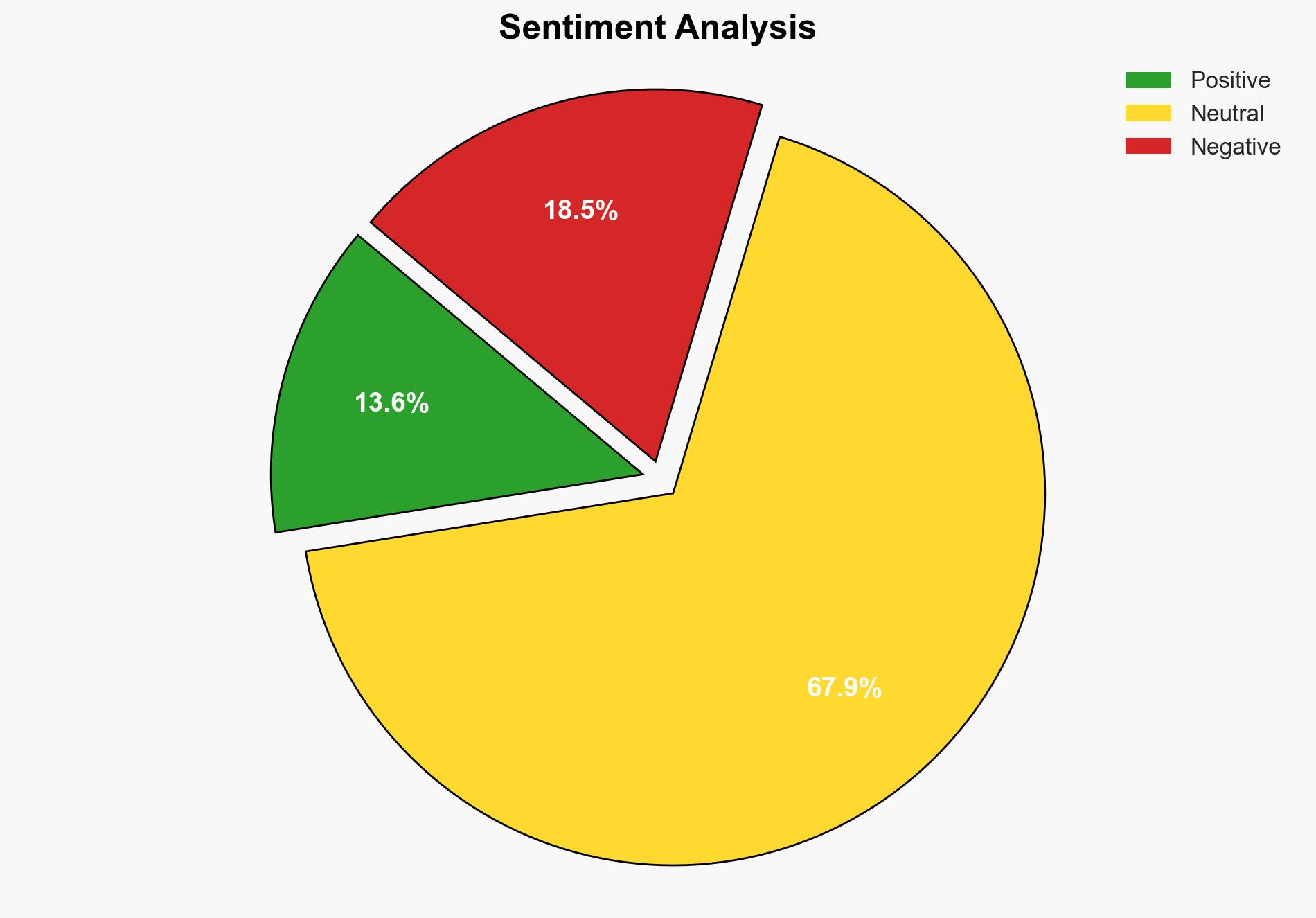Investigations at Columbia University Clash with Concerns about Free Speech on Campus – Time
Published on: 2025-03-07
Intelligence Report: Investigations at Columbia University Clash with Concerns about Free Speech on Campus – Time
1. BLUF (Bottom Line Up Front)
Columbia University is under scrutiny for investigating students critical of Israel, raising concerns about free speech on campus. The investigations coincide with federal actions against antisemitism, potentially pressuring the university. Key recommendations include balancing free speech with anti-discrimination policies, and monitoring federal influence on private institutions.
2. Detailed Analysis
The following structured analytic techniques have been applied for this analysis:
SWOT Analysis
- Strengths: Columbia’s commitment to addressing antisemitism and fostering a safe environment.
- Weaknesses: Potential overreach in restricting free speech, leading to public backlash.
- Opportunities: Strengthening policies that balance free speech with anti-discrimination.
- Threats: Federal pressure influencing private university policies and potential legal challenges.
Cross-Impact Matrix
The federal government’s actions against antisemitism may influence other universities to adopt similar measures, potentially leading to a broader debate on free speech versus discrimination on campuses nationwide.
Scenario Generation
- Best-Case Scenario: Columbia successfully balances free speech with anti-discrimination, setting a precedent for other institutions.
- Worst-Case Scenario: Legal challenges arise, and public trust in the university’s commitment to free speech erodes.
- Most Likely Scenario: Columbia revises its policies to address both free speech and antisemitism, with ongoing federal scrutiny.
3. Implications and Strategic Risks
The investigations at Columbia pose risks to academic freedom and could lead to increased federal oversight of private institutions. The situation may affect national discourse on free speech and antisemitism, potentially impacting regional stability and economic interests if similar conflicts arise at other universities.
4. Recommendations and Outlook
Recommendations:
- Develop clear guidelines that protect free speech while addressing antisemitism and other forms of discrimination.
- Engage in dialogue with stakeholders, including students and federal entities, to ensure balanced policy development.
- Monitor and evaluate the impact of federal actions on university policies to anticipate potential legal challenges.
Outlook:
In the best-case scenario, Columbia’s revised policies could serve as a model for other institutions. However, if not handled carefully, the situation could lead to increased legal challenges and public distrust. The most likely outcome involves ongoing adjustments to policies in response to federal scrutiny and public feedback.
5. Key Individuals and Entities
The report mentions Nadine Strossen and Donald Trump as significant individuals involved in the discourse surrounding free speech and antisemitism at Columbia University. The university itself and its Office of Institutional Equity are central entities in this investigation.





